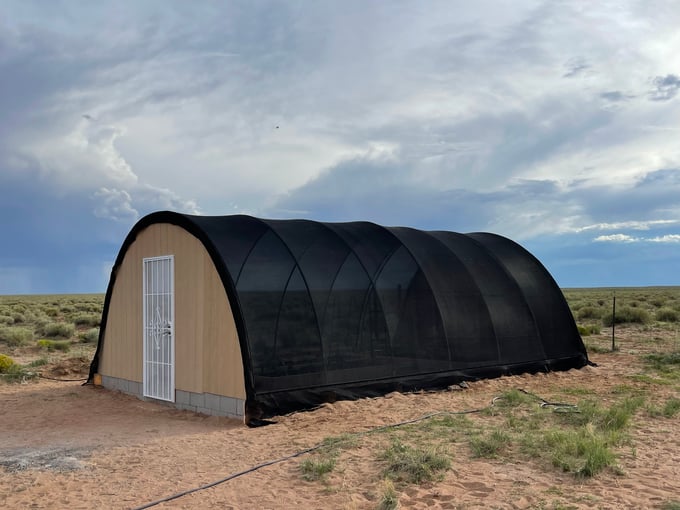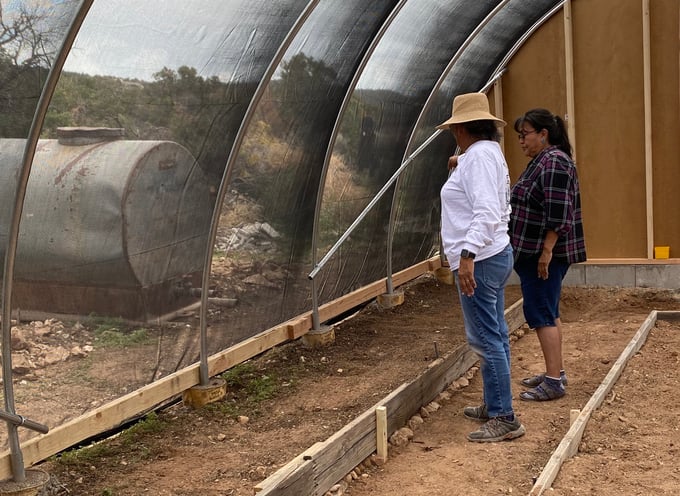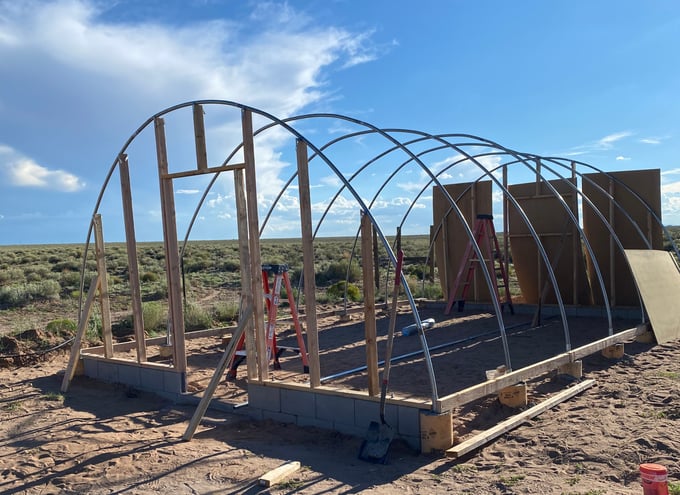Multidimensional Struggles
The Former Bennett Freeze Area (FBFA) of the Navajo Nation is home to about 20,000 people. The FBFA is the most impoverished region of the Nation, with nearly 60% of people lacking electricity and potable water, barely 24% of housing deemed suitable, paved roads rare, and unemployment hovers near 40%. One grocery store exists in the entire FBFA. One in three residents is diabetic or prediabetic, and heart disease is the second leading cause of death among citizens.

Navajo women often bear the brunt of these burdens. Their time is spread thin taking care of the house and children while also working outside the home to provide financial support. Of all Navajo households, 26% are led by a single mother, over half of which live below the poverty line. Moreover, decreasing job opportunities heighten problems for women and their families who are already struggling to make ends meet.
Reaching Greater Heights with ASCEND
The CHOICE Navajo Nation team is rekindling the spirit of traditional farming, as well as new technology-based methods of growing, through the Navajo Women ASCEND Program. ASCEND aims to address two overlapping and critical needs: first, the lack of available, affordable, nutrient-rich food; and second, the lack of income generation and employment opportunities, especially for women, in the FBFA.
To accomplish this, CHOICE identifies “t’a whi’aji’tao” persons, or positive deviations—individuals and communities who are by nature researchers, risk-takers, and entrepreneurs—and supports them to grow more ecologically, using more technology and sound agricultural methods, with the willingness to innovate and utilize effective farming methods. One of the methods is the “hoophouse'' (a type of greenhouse) in which produce can be harvested year-round. The hoophouse serves as the focal point of ASCEND not only in providing nutrient-rich food, growing high-value vegetables and herbs, and producing seedlings for transplanting, but also in that its use will transform into long-term entrepreneurial opportunities for program participants.

To date, ASCEND has resulted in the construction of over 20 hoophouses. Over 40 people have been trained in the management and operation of these hoophouses, including canning produce, pest control, and fruit tree pruning. Six program associations have been formed, and over 390 families now have reasonable and consistent access to nutritious food.
A Chance at Food Security for a Mother and Daughter
Marie Goldtooth and her mother, Louise Boone, are Diné women from Cameron Chapter in the FBFA. Food security is a serious issue for Marie and Louise, as the nearest grocery store is an hour-and-a-half away.
Marie learned about CHOICE while encountering a hoophouse under construction. After learning more about hoophouses, including how they can prolong one’s growing season into the winter and act as a barrier for pests, she knew it was the solution to their food insecurity.

Marie proceeded to build a hoophouse with CHOICE, along with generous financial and labor support from ASEA Advancing Life Foundation. She, Louise, and their relatives now grow nutritious produce year-round. When challenging economic times arise or dangerous weather makes travel difficult, they do not have to rely on lengthy trips to the grocery store.
Not only does Marie grow produce to eat, but she also wants to utilize the produce in her small catering business. Healthy eating is also one of Marie’s goals in life, and she would like to promote the idea that you can grow food in remote areas despite the challenges. Marie finds solace in knowing how many people care about her welfare and want to help others reclaim their food security. Thanks to ASCEND, Marie stated, “I feel more thankful and hopeful, and my catering business acquired more revenue. The network of people I met have been supportive and helpful.” Ultimately, Marie is hopeful ASCEND will lead to her achieving her goal of self-reliance.